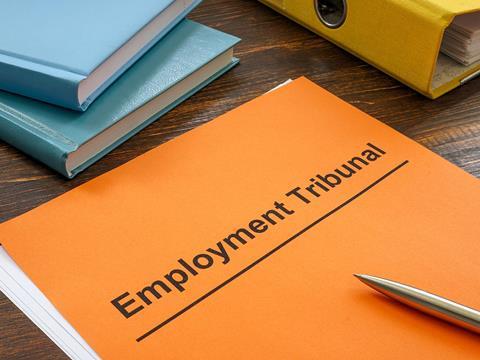
The Employment Appeal Tribunal (EAT) has dismissed an appeal regarding a discrimination claim brought by a cleaner for the Ministry of Justice (MoJ), deeming that it is not liable for the complaint because she was contracted out.
Fatima Djalo is employed as a cleaner by OCS, a private firm that provides facilities management services to the MoJ and other government departments.
She claimed that the MoJ had indirectly discriminated against her by denying her the same level of pay as it paid directly employed staff. She added that workers in her position were disproportionately from black or other ethnic minorities.
Djalo claimed that the MoJ had the contractual power to compel OCS to uplift her pay to the London living wage.
Her initial tribunal proceeded on the principle that the department had applied the provision, criterion or practice (PCP) of paying contract workers differently to directly employed workers, and required workers to be directly employed if they were to be paid in line with its pay scale.
This, she claimed, had caused a group disadvantage for ethnic minority workers.
The initial employment tribunal struck out her claim on the basis that sections 19 and 41 of the Equality Act 2010 do not protect contract workers against differences in pay between them and directly employed workers.
In February last year, a group of toilet cleaners and attendants for London’s Royal Parks brought a similar case arguing that their outsourced contracts amounted to indirect race discrimination.
This case was initially won at employment tribunal in 2021 but was overturned at the EAT. The Court of Appeal subsequently ruled that section 41 of the Equality Act did not permit a discrimination claim to be brought by a contract worker against the principal employer relating to the employees’ pay by their employer, in this case Vinci.
The Royal Parks case informed the EAT’s decision in Djalo’s claim. Justice Heather Williams ruled that her initial tribunal had been correct in concluding that the claim did not fall under section 41 of the Equality Act.
Djalo had also claimed that the lack of protection from indirect discrimination when it came to pay of contract and non-contract workers did not align with the European Convention on Human Rights.
The EAT also rejected this argument, concluding that Djalo had not been subject to less favourable treatment.
Djalo was supported by the United Voices of the World union, which has been involved in multiple campaigns to gain fairer treatment for outsourced cleaners, carers and other staff.











